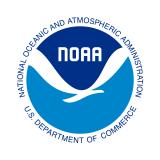Representing Human-Managed Influences through Thermal Product Data Assimilation in NLDAS: Impacts on the Terrestrial Water Budget and Drought Estimation

The North American Land Data Assimilation System (NLDAS) has a long successful history of producing products that are used for drought monitoring and numerous other water applications. This research will enable the use of daily vegetation products and the assimilation of thermal remote sensing products in NLDAS. The team believes that incorporating these products into NLDAS land-surface models will also produce improved data products for drought monitoring and water resource management that better represent evolving conditions under human-caused and natural changes.
This research focused on the following three objectives:
- Using retrospective and operational vegetation parameter products (LAI/GVF) to improve the representation of vegetation within the North American Land Data Assimilation System (NLDAS). This element will demonstrate the impact of these daily products relative to existing monthly climatologies.
- Using retrospective and operational thermal-based products to better represent impacts of human-managed agricultural water use and other human-managed influences.
- Performing a thorough evaluation of the current and upgraded NLDAS systems using the NASA-developed Land Verification Toolkit for comparison to observations and benchmarking. This element will quantify the improvements to simulated soil moisture, streamflow, and other hydrological fields towards a more realistic and representative drought monitoring system.
Research Snapshot
Peer-Reviewed Publications
Rahman, A., et al. 2020. "A synthetic experiment to investigate the potential of assimilating LAI through direct insertion in a land surface model." Journal of Hydrology X, 9, December 2020.
Zhang, X., et al. 2020. "The influence of assimilating leaf area index in a land surface model on global water fluxes and storages." Hydrology and Earth System Sciences, 24, July 2020.
Kumar, S. V., et al. 2019. "Assimilation of remotely sensed Leaf Area Index into the Noah-MP land surface model: Impacts on water and carbon fluxes and states over the Continental U.S." Journal of Hydrometeorology, 20 (7), July 2019.



